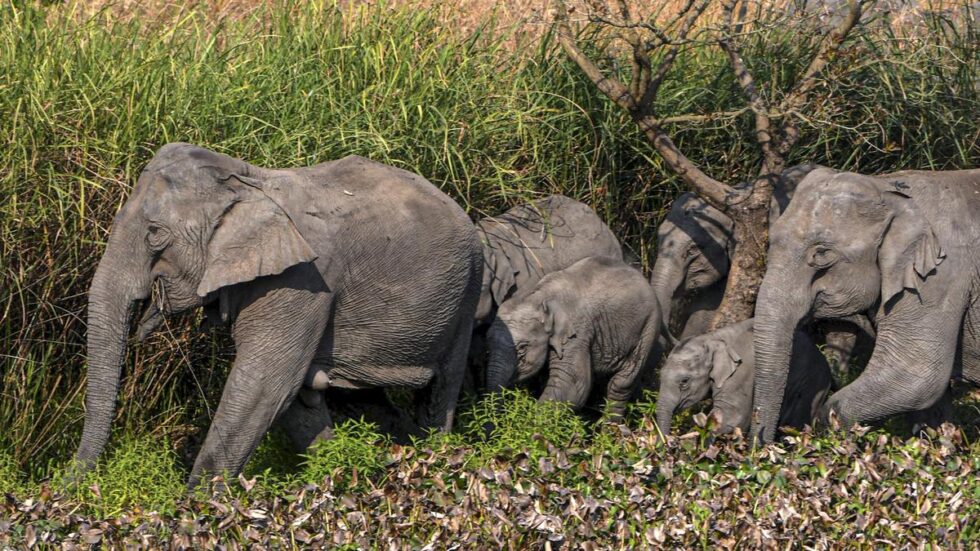
The chief of the Bodoland Territorial Council (BTC), Pramod Boro, has asked forest officials to track down and punish the killers of three elephants in the Manas National Park on Friday (May 2, 2025).
The 500 sq. km. Manas, a transboundary protected area, is within the Bodoland Territorial Region (BTR), which the BTC governs. Forest guards found the carcasses of the elephants in the Palengshi Beat area of the park’s Panbari Range close to the India-Bhutan border.
“We have taken this incident with utmost seriousness, and the officials have been directed to take all necessary steps to catch and punish the culprits. We will not tolerate any harm to our wildlife and will ensure strict action against those involved,” he told journalists on Saturday (May 3, 2025).
He said the BTR saw a sharp decline in poaching over the past few years. Sustained efforts by the government led to the surrender of scores of poachers. He added that the former poachers and hunters were provided one-time financial aid to support alternative livelihoods.
The government has also undertaken steps to reduce human-elephant conflicts and fast-track compensation for the families of people killed in such incidents. “The declaration of the Raimona National Park and the Sikhna Jwhwlao National Park in the BTR was a part of our efforts to protect wildlife and preserve our natural resources,” Mr. Boro said.
The poaching incident triggered outrage in the areas around the Manas National Park, where elephants are often revered despite frequent conflicts with humans. The local units of the All Assam Students’ Union and the All Adivasi Students’ Association of Assam have stepped up pressure on the BTR authorities to crack down on poachers and wildlife body parts traffickers.
2 wildlife traffickers caught
On May 1, Border Security Force (BSF) personnel caught two wildlife traffickers at Ghewmari in western Assam’s Dhubri district and recovered 202 common sand boas (Eryx johnii) from them.
The two were identified as brothers Arif Mal and Talib Mal from North 24 Parganas in West Bengal. They were caught trying to smuggle the snakes in sacks across the border.
The common sand boa, primarily found in southern India, is listed under Schedule IV of the Wildlife Protection Act, 1972. Believed to bring wealth and prosperity, this non-venomous snake is in high demand in the grey market.
“The large number of rescued snakes points to a wider trafficking syndicate. We have launched a comprehensive investigation to find the network’s reach and connections,” an officer of the Forest department, which took custody of the common sand boas, said.







